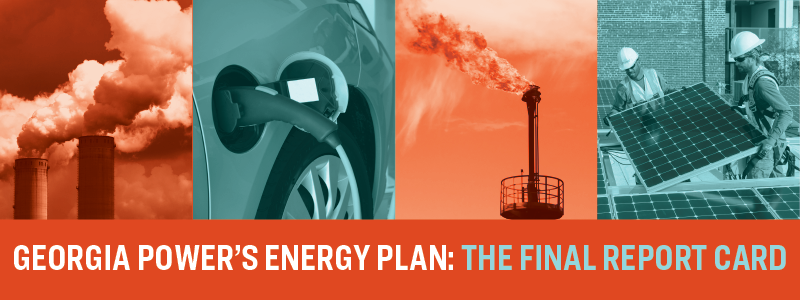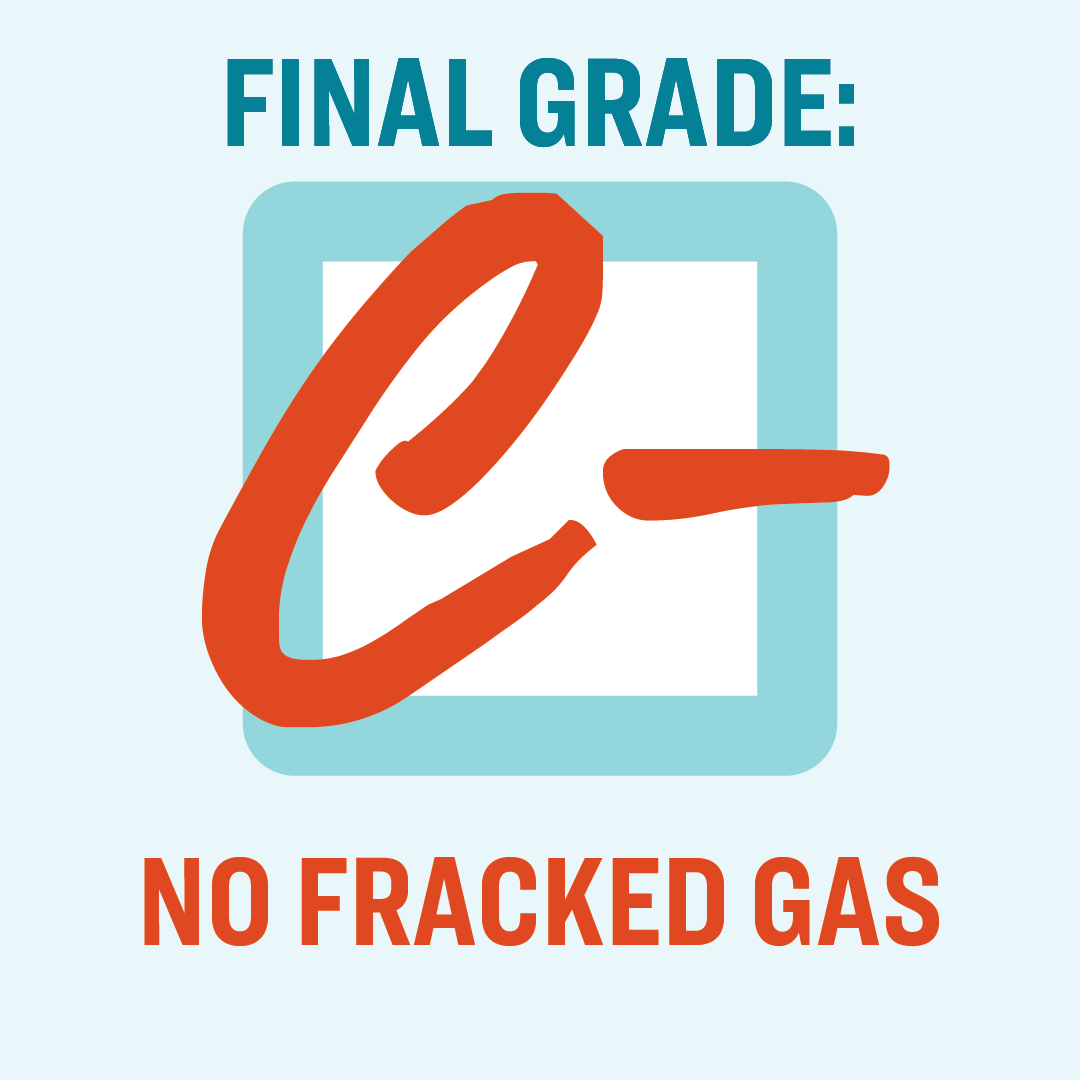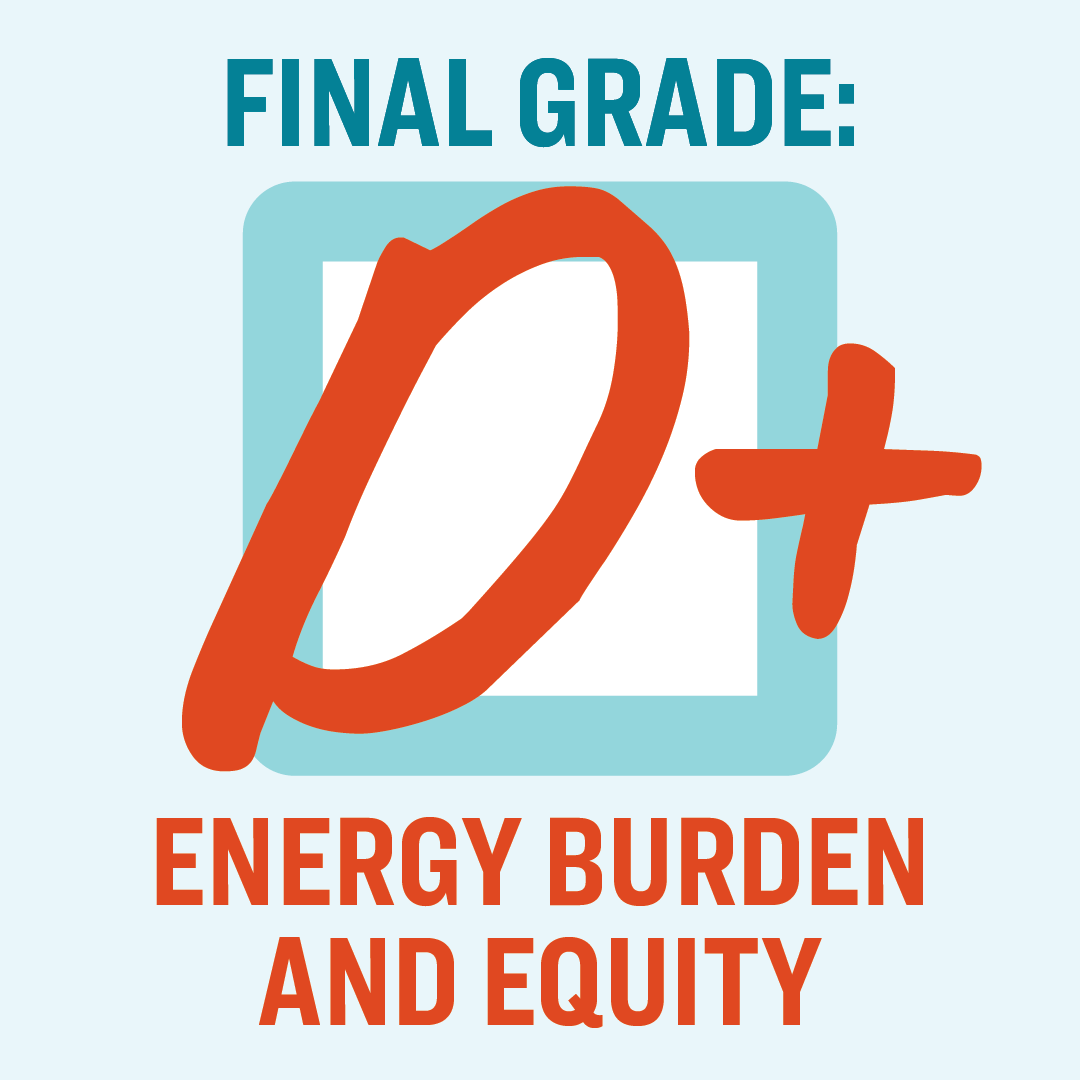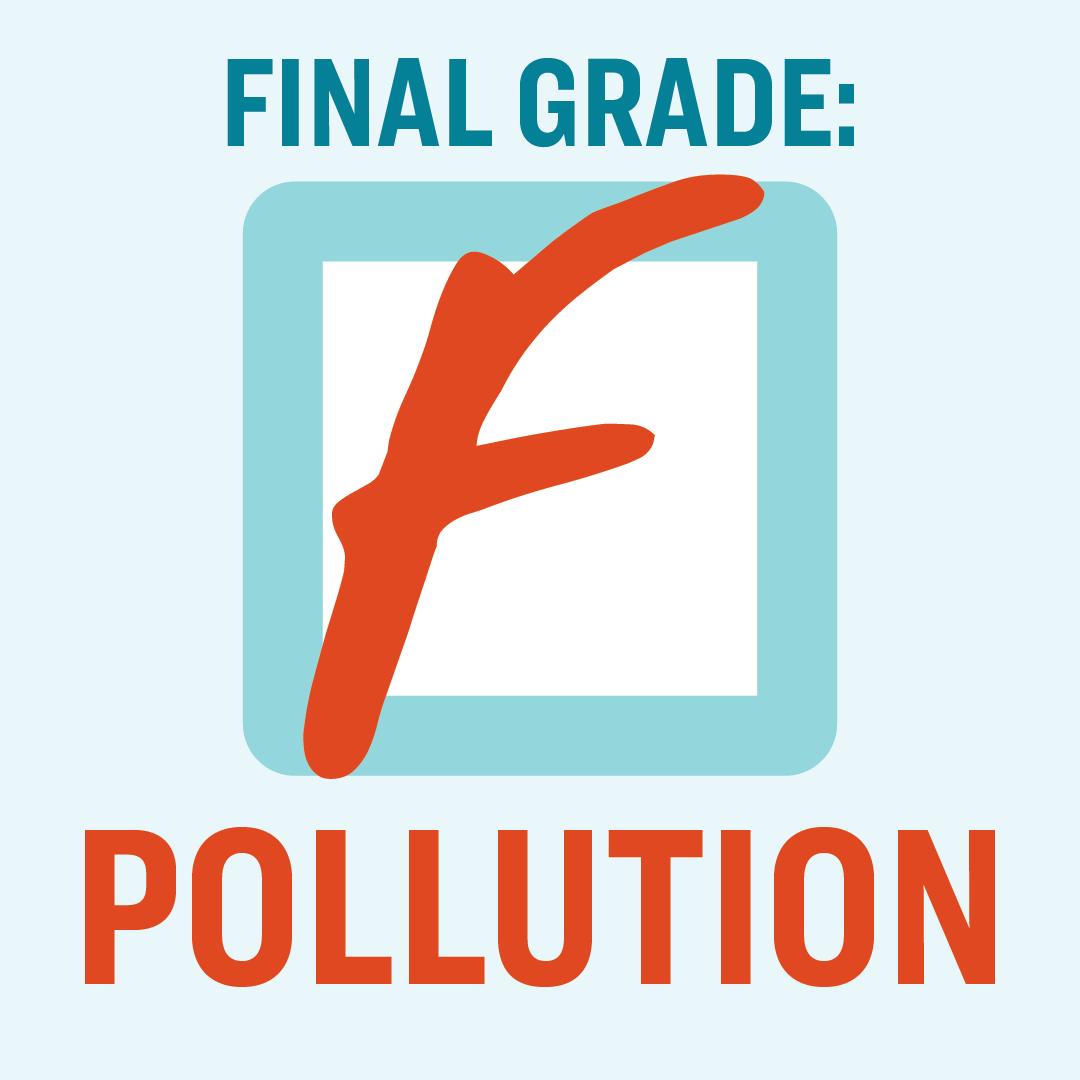
Every three years, Georgia Power has to prepare an Integrated Resource Plan, also known as an IRP. The IRP outlines how Georgia Power will generate the electricity it will sell to its customers for the next 20 years, deciding whether that electricity comes from clean, renewable sources or from dirty fossil fuels like coal and fracked gas.
The Georgia Public Service Commission (PSC) approved Georgia Power’s plan on July 21, 2022. The PSC is a five-member elected governmental body responsible for regulating utilities in Georgia, including electric, gas, and telecommunications services.
Sierra Club wants to help customers throughout the state understand what is included in Georgia Power’s approved energy plan, and what happens next.
Below, we have broken down the final IRP into categories and graded it based upon the follow criteria:
- Timeframe - How secure and how far away are Georgia Power’s proposed commitments? Are they within the current three year energy planning cycle or are they long term goals? Georgia Power shouldn’t get credit for what they say they’ll do in 10 years if they don’t follow through.
- Environmental Justice - Is Georgia Power taking swift action to address legacy pollution from closed coal plants? Is Georgia Power supporting communities who will experience the closure of a coal plant with worker transition and other programs?
- Equity and Affordability - Is Georgia Power prioritizing energy that is clean and affordable for all, addressing challenges for those with the highest energy burdens, and investing in programs that save energy and lower customers bills?
- Climate Impact - What actions is Georgia Power taking to address greenhouse gas emissions and pollution? How much electricity does Georgia Power plan to obtain from fossil fuels compared to clean energy sources?
- Transparency, Honesty, Accountability - Is Georgia Power being honest about its plans or misrepresenting them? Do the proposals in the IRP match Georgia Power’s stated values and goals?
Click here to read the Sierra Club's analysis of Georgia Power's initial proposal. When compared to the final IRP, the grades for some categories went up or down; in others, the grade stayed the same.
Commitment to Climate Action
(Initial Grade: D)

The Good:
- Georgia Power has signaled that it intends to shut down almost all of its coal plants in the near term.
- Georgia Power plans to double its renewable energy capacity by 2033.
The Bad:
- Georgia Power is substituting some of its coal capacity with fracked gas, which contains methane, a potent greenhouse gas.
- Georgia Power’s buildout of renewable energy is far too slow to meet the urgency of our climate crisis. Sierra Club’s models showed that the utility could actually build twice as much as proposed.
The Bottom Line:
- Southern Company, Georgia Power’s parent company, made a commitment to reach “net zero” carbon emissions by 2050, but Georgia Power’s plans don’t make good on that promise.
- Georgia Power needs to make significant changes in order to fully decarbonize its electricity production, recognizing that we are in the midst of a global climate crisis.
Ditch Coal
(Initial Grade: B-)

The Good:
- Plant Wansley Units 1, 2, and 5A will be closed by August 2022.
- Plant Scherer Unit 3 will be closed by December 31, 2028.
- In total, 2,795 MW of coal capacity will come offline.
The Bad:
- Georgia Power wanted to lock-in retirement dates for Plant Bowen Units 1 and 2, but the PSC declined and instead deferred a decision on retirement until the next IRP in 2025.
- Georgia Power wants to burn coal at Plant Bowen Units 3 and 4 until 2035. In order to comply with federal regulations, Georgia Power plans to install expensive pollution control technologies at the plant (paid for by customers), instead of retiring it earlier in favor of more affordable clean energy alternatives.
The Bottom Line:
- Coal is the most polluting energy source, its emissions directly contribute to climate change and pollutes the air with harmful toxins, and it’s more expensive than clean energy alternatives.
- The coal ash left behind from coal electricity production can pollute water with toxins like arsenic and chromium that cause cancer.
No Fracked Gas
(Initial Grade: C-)

The Good:
- Georgia Power isn’t building any new gas plants, at least in this IRP.
The Bad:
- The PSC approved Georgia Power’s request to buy a massive amount of electricity fueled by fracked gas from Georgia Power’s sister company, an unregulated subsidiary of Southern Company, through a series of six power purchase agreements (PPAs).
- The utility plans new gas plant construction in 2040. This highlights Georgia Power’s lack of commitment to climate goals.
The Bottom Line:
- Methane — the primary component of fracked gas — is a greenhouse gas more than 80 times more powerful than carbon dioxide over a 20-year timeframe, and a major contributor to the climate crisis.
- Gas is a volatile resource prone to sudden price spikes and supply interruptions due to extreme weather disasters and international crises. This IRP locks Georgia into more than a decade of using fracked gas, the pollution it produces, and its extreme price volatility.
Go Big on Clean Energy
(Initial Grade: C)

The Good:
- Georgia Power is investing in renewable energy, albeit slowly.
- Georgia Power is only making modest solar investments in this IRP cycle: 2,300 megawatts (MW) in the next three years.
The Bad:
- Georgia Power won’t double its renewable energy capacity for at least a decade, and it should have planned to build far more than 2,300 MW. Sierra Club’s expert modeling showed that the utility should actually build twice as much as it initially proposed.
- Georgia Power requested to build 1,000 MW of battery storage, but the PSC only approved 265 MW of battery storage at the McGrau Ford substation (operational by 2026) and an additional 500 MW of storage, which is much less than the company’s original proposal.
- Georgia Power shows no support for the expansion of the state’s rooftop solar net metering program. Commissioners Echols and McDonald wanted to increase the net-metering program by expanding the cap and increasing funding, but they were outvoted by the rest of the Commissioners. The PSC decided to defer and deliberate on net metering in the 2022 Rate Case (which is already underway).
The Bottom Line:
- Georgia Power needs to recognize that solar and batteries are by far the most cost effective energy sources that are emissions-free.
- The expanding solar industry also creates good-paying jobs. Georgia is already home to the largest solar panel manufacturer in the Western Hemisphere. We should be making significant investments in solar power NOW.
Energy Burden and Equity
(Initial Grade: D)

The Good:
- Led by Commissioner McDonald, the PSC increased Georgia Power’s energy efficiency targets by 15%, a modest but welcomed increase.
- The boosted energy efficiency target is intended to benefit customers by giving them more control over their bills. Georgia Power must implement programs to meet this target, which could include expanded weatherization or equipment upgrades.
The Bad:
- Low-income Georgians face some of the highest energy burdens in the entire U.S., which means they spend a large percentage of income on power bills.
- Georgia Power’s lack of investment in energy efficiency programs ignores the needs of low-income Georgians who would significantly benefit from home weatherization and other improvements.
The Bottom Line:
- Improving energy efficiency is one of the most useful ways to fight climate change: it reduces greenhouse gas emissions, reduces demand for energy imports, and lowers costs for consumers. However, Georgia Power’s energy efficiency targets in this IRP are still too low given our clean energy challenges.
Pollution
(Initial Grade: F)

The Good:
- Coal ash at Plant Wansley will be moved to a dry, lined landfill, which is an improvement over the originally planned cap-in-place at the site.
- Due to the declining economic viability of coal, Georgia Power is choosing to close most of its coal-fired power plants over the next 10 years.
The Bad:
- Georgia Power has more than 90 million tons of toxic coal ash stored across the state, risking the health of communities throughout Georgia. The utility plans to store millions of tons of this coal ash in pits without liners, allowing toxic material to seep into groundwater, which can cause cancer and reproductive health issues. Sierra Club has consistently argued that the Public Service Commission shouldn’t approve or fund cap-in-place plans that violate federal and state regulations.
- Much of Georgia Power’s energy portfolio (coal and fracked gas) causes air pollution and leads to a significant number of health problems: lung cancer, heart attacks, increased mortality, and childhood asthma (nearly 1 in 10 Georgia children suffer from asthma).
The Bottom Line:
- Georgia Power should increase its investments in clean energy sources and transition away from all fossil fuels as quickly as possible to reduce its greenhouse gas emissions. The longer the timeline for this transition, the more carbon is released into the atmosphere and the higher the pile of coal ash gets.
- The Wansley change proves that the utility has the capacity and ability to safely store all its coal ash, not just some of it. Until all coal ash is properly stored in dry, lined landfills away from waterways, Georgia Power gets a failing grade for pollution.
Electric Vehicles
(Initial Grade: Incomplete)

The Good:
- EV sales are increasing rapidly, and at least 10 auto manufacturers have pledged to shift to producing only electric vehicles.
- Georgia has quickly become an attractive destination for electric vehicle manufacturers. Several new EV manufacturing plants are being built here, bringing good manufacturing jobs with them.
The Bad:
- Electric vehicles are hardly mentioned in the IRP. The only EV-related discussion is a proposal to repurpose old EV batteries for energy storage and a general statement that Georgia Power is pro-electric vehicle.
- Sierra Club requested that the PSC open a separate EV docket, but they rejected this proposal.
The Bottom Line:
- Transportation is the leading source of climate-disrupting pollution in the nation, and the urban housing shortage is driving longer commute times.
- The expected increase in EVs requires careful planning to ensure that additional demand due to EV charging does not harm our electric grid.
- Building healthier communities requires advancing clean cars and family-sustaining jobs in the US — improving air quality, reducing climate emissions, and securing economic justice go hand in hand.
What happens next?
For the rest of 2022, we’ll be engaging in Georgia Power’s “Rate Case,” which determines how much we pay for electricity.
Rate Case proceedings happen every three years; this year’s case is the first time since 2019 that these financial questions have been examined. At the end of the process in December 2022, our five elected Public Service Commissioners will enter a final order about the economics of our electricity. Sierra Club is gearing up to represent the interests of Georgians during the proceedings.
During the last rate case three years ago, Georgia Power requested (and the PSC approved) increasing customers’ monthly base fee by $4. This base fee is unaffected by the amount of electricity used, so there is no way for customers to try to offset the increase by reducing electricity use or improving energy efficiency. The PSC also approved Georgia Power’s proposal to make customers cover most of the cost to clean up its coal ash.
This year, Georgia Power is back for more cash. The utility has asked for an 11.9% increase in electricity rates, which would result in the average customer paying about $16.29 more each month (or about $195 more on the year). And that’s just an estimate of the average: Many people will pay far more than that. The Sierra Club will be fighting to stop this rate increase and other Georgia Power proposals to squeeze more money from ratepayers to cover its bad decisions.
Folks in Georgia already experience some of the highest energy burdens (percentage of income spent on utility bills) in the country. Increasing rates dramatically during precarious economic times could spell disaster for thousands of Georgians who are already struggling, forcing tough choices like keeping the lights on or buying medicine.
No Georgian should experience a crisis because of a power bill. We’ll work hard to fight Georgia Power’s proposed rate hikes.
Ready to join us? No matter your background or experience, we need everyone in the fight for affordable, clean energy. Click here to help us fight this rate hike.